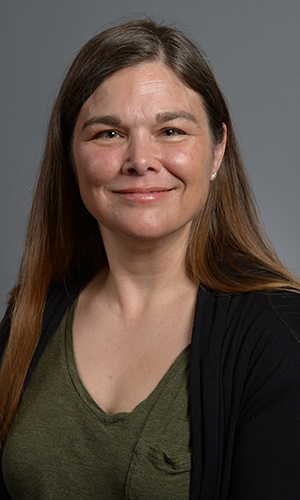Dr. D Cornelison
Dr. D Cornelison

PhD, 1998 California Institute of Technology
Signaling and activity of skeletal muscle satellite cells
Our group studies development, regeneration and disease in mammalian skeletal muscle, with a focus on extracellular signaling pathways that modify muscle stem cell behavior. These tissue-specific stem cells (satellite cells) are necessary for muscle regeneration, and follow a characteristic pattern of activity in response to local muscle damage. In uninjured muscle they rest in a quiescent, nonproliferative state between the cell membrane of their host muscle fiber and the basal lamina surrounding it. Unlike the majority of adult stem cells, satellite cells do not have a highly organized ‘niche’ to regulate their proliferation and self-renewal. When they sense muscle damage, satellite cells are activated out of quiescence, upregulate muscle-specific genes, and proliferate to form a pool of replacement myoblasts that will eventually differentiate into new muscle cells to repair or replace muscle tissue that has been lost or damaged. Satellite cells that are not directly in the damaged area can be activated as well and recruited to the site to participate in muscle regeneration. The signaling molecules controlling satellite cell activation, proliferation, migration, differentiation, and self-renewal are produced by the muscle fibers, muscle fibroblasts, inflammatory immune cells, and the satellite cells themselves, and are dynamically expressed in space and time. Our ‘big picture question’ is how satellite cells integrate and respond to extracellular signals in order to rapidly, efficiently, and repeatedly respond to muscle damage or disease.
Recently, our research has centered on satellite cell motility and migration. We are working to identify soluble factors released during muscle damage that would promote satellite cell motility and recruitment; matrix-modifying factors that would allow satellite cells to travel through the extracellular matrix; and guidance factors that would direct satellite cell migration pathways and facilitate self-sorting. We study satellite cells from wildtype and disease models of mouse, dog, and human in culture using timelapse microscopy, immunohistochemistry, and gene expression assays, as well as in vivo models of muscle injury and disease in mouse. We also study satellite cell interactions with nonmuscle cells including neurons, glia, macrophages, and interstitial cells. Potential applications of our work are improving cell transplant therapies for conditions such as Duchenne’s muscular dystrophy; our research is funded by the Muscular Dystrophy Association and the National Institutes of Health.
William H. Byler Distinguished Professor Award 2025
Richard F. and Sharon A. Keister Faculty Enhancement Award in Biological Sciences, 2024
Abraham Eisenstark Faculty Fellow Award 2018
Presidential Early Career Award for Scientists and Engineers 2017
Outstanding Undergraduate Research Mentor Award 2015
College of Arts and Sciences Purple Chalk Award for Excellence in Teaching 2011
A list of Dr. Cornelison's publications is available from Google Scholar.